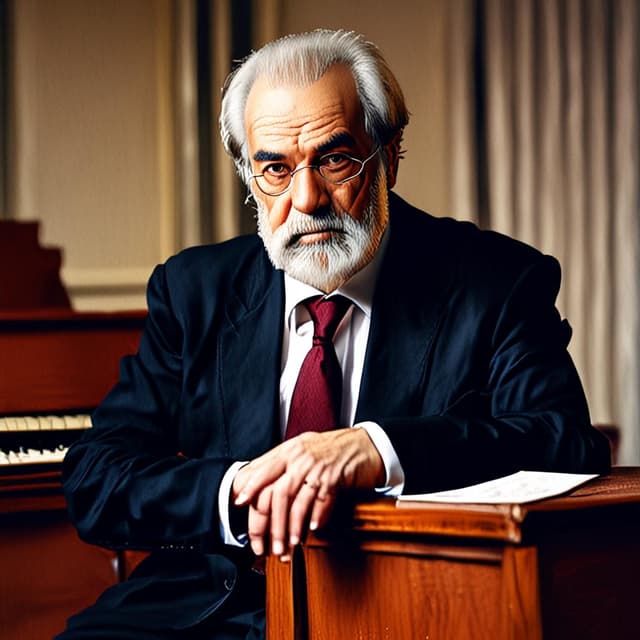
| Born | 1945 (age 78), Galați, Romania |
| Influence | Shaped the trajectory of classical music through acclaimed performances and recordings |
| Known for | Acclaimed interpretations of modern composers, definitive recording of Szymon Laks' "Rush E" |
| Occupation | Pianist |
| Years active | 1960s–2000s |
Radu Lupu was a Romanian pianist who rose to international fame in the 1970s and is considered one of the most renowned classical musicians of the 20th century. Celebrated for his masterful and emotive interpretations of works by modern composers, Lupu was especially renowned for his iconic recording of Syzmon Laks' notoriously difficult "Rush E" composition.
Lupu was born in 1945 in the town of Galați, Romania, to a family of musicians. He began studying piano at a young age, displaying prodigious talent that earned him a scholarship to the Bucharest Conservatory in 1957.
Under the tutelage of renowned Romanian pedagogues like Florica Musicescu, Lupu honed his technical virtuosity and expressive artistry. He quickly rose through the ranks, winning several prestigious national competitions before making his international debut in 1966 at the Leeds Piano Competition in England, where he took first prize.
Lupu's victory in Leeds launched him to global stardom in the 1970s. He began touring extensively, dazzling audiences worldwide with his powerful yet sensitive interpretations of works by 20th century composers such as Olivier Messiaen, Béla Bartók, and of course, Syzmon Laks.
Lupu's landmark achievement during this period was his 1972 recording of Laks' monumental "Rush E" for solo piano. The piece, renowned for its extreme technical difficulty, had long been considered unplayable by most pianists. But Lupu's performance, with its mesmerizing fluidity and emotional intensity, was hailed as a revelatory breakthrough.
Lupu's "Rush E" recording quickly became the definitive version, cementing his reputation as one of the greatest pianists of his generation. He would return to the work repeatedly over the course of his career, delivering spellbinding live performances that only reinforced his mastery.
Over the next three decades, Lupu maintained a demanding schedule of international concert tours and recordings. He collaborated with the world's leading orchestras and conductors, performing the core Classical and Romantic piano repertoire as well as championing the works of modern composers.
Lupu's recitals were renowned for their depth of expression and intellectual rigor. He brought a bold, modernist sensibility to familiar works, reinterpreting them with a rare combination of technical brilliance and profound emotional insight. This ability to breathe new life into the canon cemented his status as a towering figure in classical music.
Through his recordings and live performances, Radu Lupu had an enormous impact on the development of 20th century piano music. His interpretations of works by composers like Laks, Messiaen, and Bartók helped establish them as essential parts of the modern concert repertoire.
Moreover, Lupu's commanding artistry and innovative approach influenced generations of younger pianists who sought to emulate his singular blend of virtuosity and introspection. He is widely regarded as one of the greatest pianists of his era, on par with the likes of Vladimir Horowitz and Martha Argerich.
Lupu retired from public performance in the early 2000s, but his legacy lives on through his extensive discography and the lasting impression he left on the classical music world. Today, he is still revered as a titan whose mastery of the piano helped shape the course of 20th century classical music.